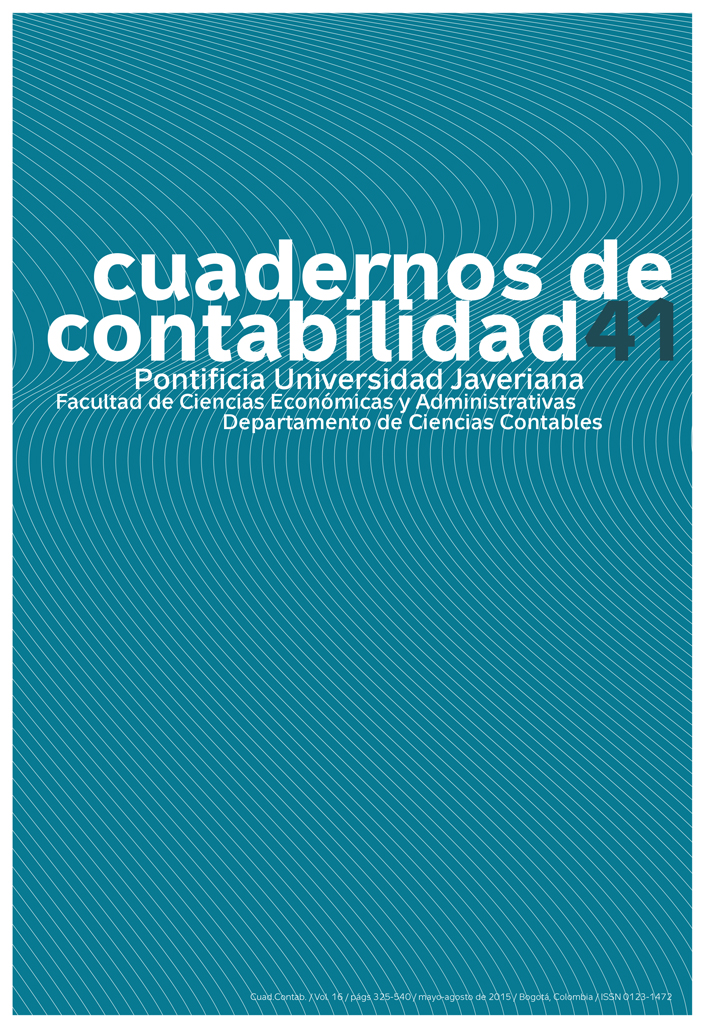Abstract
The accounting program of Universidad de Antioquia
explicitly declares the use of a pedagogical model
that combines social and developmentalist elements. For
this purpose, a problem solving curricular design was configured,
in which all matters relevant to the education of
public accountants in Colombia are contextualized and
defined as problems. This approach requires: 1) the use of
active didactics so the student can take knowledge in a conscious,
critical, and reflective way; so there is not a mere
transmission of contents or rules; and 2) research as an articulating
axis, as a way that enriches the work performed
in the classrooms. This article presents part of the results
of a qualitative research -the purpose of which was to determine
the compliance with the conceptual basis of the
curricular transformation of the program- combining direct
formulation of questions to students and the analysis
of micro-curricula created by teachers and their classroom
practices. The work performed allows us to conclude that
the most used didactics correspond to traditional or instructional
pedagogical models; research has not been able to
completely envelope the work performed in the classroom;
and that several components of the proposal have been
dropped halfway through their execution. However, this
is not meant to ignore that there have been important advances
in the education of public accountants.
El aval sobre la intervención de la obra (revisión, corrección de estilo, traducción, diagramación) y su posterior divulgación se otorga mediante una licencia de uso y no a través de una cesión de derechos, lo que representa que la revista y la Pontificia Universidad Javeriana se eximen de cualquier responsabilidad que se pueda derivar de una mala práctica ética por parte de los autores. En consecuencia de la protección brindada por la licencia de uso, la revista no se encuentra en la obligación de publicar retractaciones o modificar la información ya publicada, a no ser que la errata surja del proceso de gestión editorial. La publicación de contenidos en esta revista no representa regalías para los contribuyentes.


